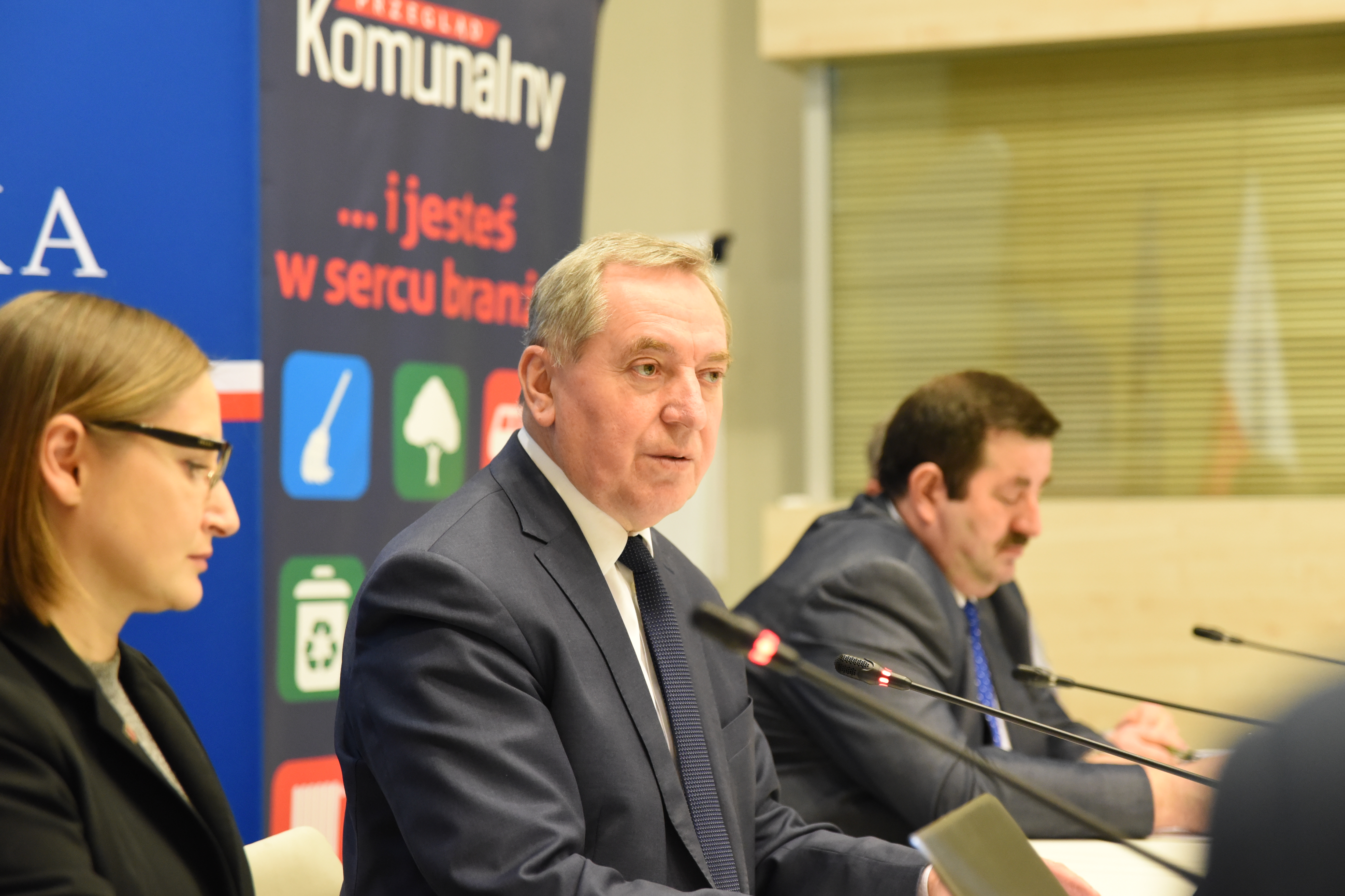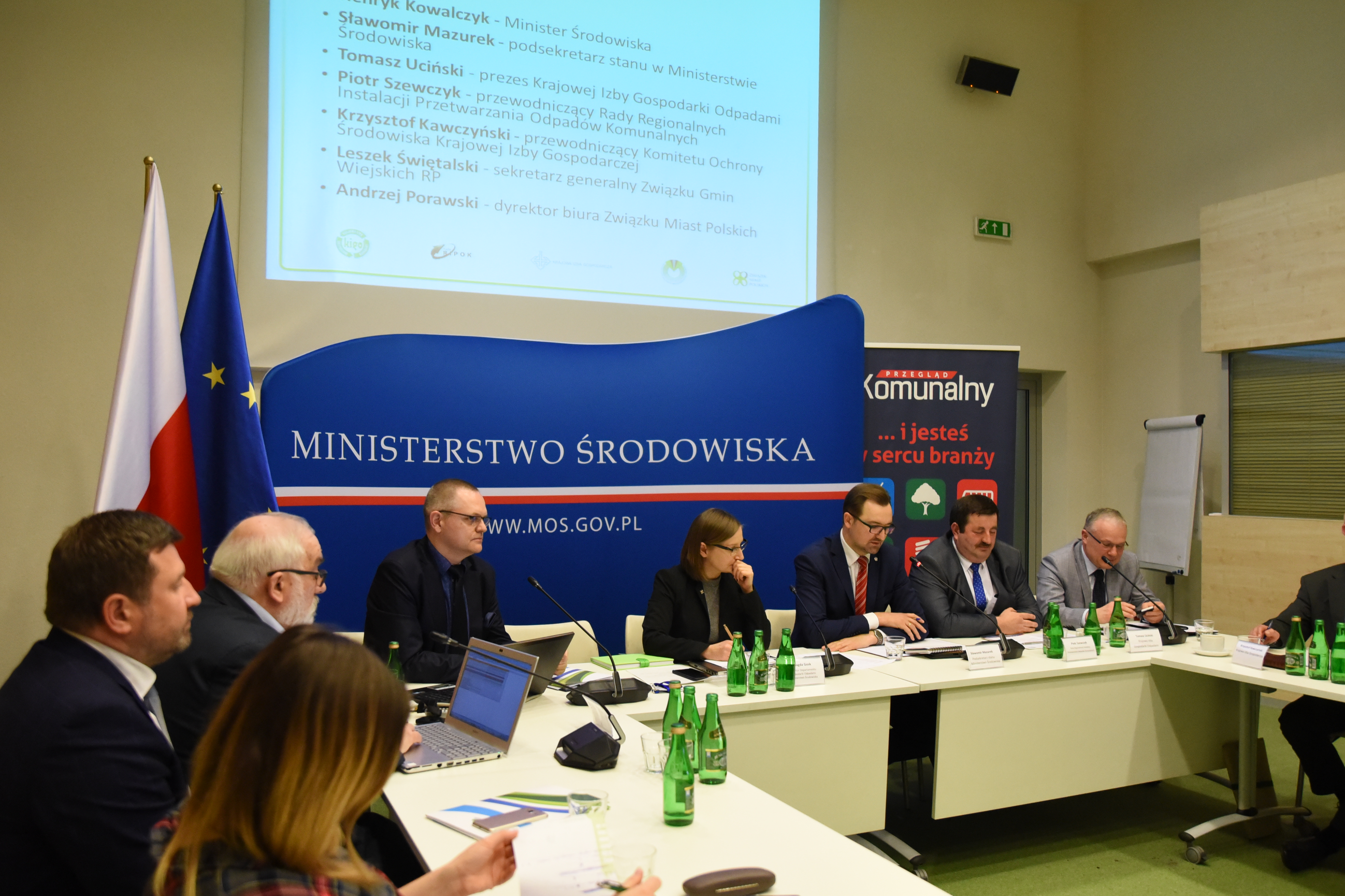Waste management in the spotlight
28.03.2019
Waste management and bio-waste in particular was the main topic of the debate attended by the Minister of Environment Henryk Kowalczyk, Vice-Minister Sławomir Mazurek and representatives of the waste management industry. The meeting was held on the 28th of March at the Ministry of Environment.

During the meeting, Minister Henryk Kowalczyk reminded that waste management should be based primarily on waste management hierarchy. As he pointed out, the creation of waste must be prevented in the first place, and the already produced waste must be either reused or recycled.
The Minister of Environment also pointed out the importance of proper organisation of selective waste collection at source by municipalities, including the establishment of easily accessible infrastructure for selective collection of various waste fractions.
Waste is a potential resource. With their proper segregation we will get a good quality raw material that can be reused or recycled. This is important, among other things, because of the need for Poland to achieve the required recycling levels – Minister Kowalczyk pointed out.
In turn, Vice-Minister Sławomir Mazurek reminded that uniform standards of selective waste collection for the whole of Poland were introduced in order to improve the effectiveness of waste segregation. Waste is currently separated into four fractions: glass, paper, metals and plastics, including multi-material packaging, and biodegradable waste.
By supervising proper selective collection of municipal waste and organising educational activities for the residents, municipalities may have a real impact on the quality of selective waste collection, which in turn may have a positive impact on the market price, said Vice-Minister Mazurek.
The Vice-Minister also mentioned that the draft amendment to the Act on Maintaining Cleanliness and Order in Municipalities provided, among other things, for the possibility of exempting property owners who manage their own bio-waste in household composters from part of the fee.
Selective collection of bio-waste contributes to improving the quality of secondary raw materials and increasing their recyclability, and thus translates into higher recycling rates, he added.
The processing of selectively collected green waste and other bio-waste results in compost (in composting plants), as well as digestate and biogas used for energy purposes (in fermentation plants).
The debate was also attended by: Piotr Szewczyk, Chairman of the Council of Regional Municipal Waste Treatment Plants (RIPOK Council), Tomasz Uciński, President of the National Chamber of Waste Management (KIGO), Krzysztof Kawczyński, Chairman of the Environmental Protection Committee of the Polish Chamber of Commerce (KIG), Leszek Świętalski, Secretary General of the Union of Rural Municipalities of the Republic of Poland and Andrzej Porawski, Director of the Office of the Association of Polish Cities (ZMP).
The debate was organised by the Ministry of Environment and Przegląd Komunalny.
Photos (3)
- Last updated on:
- 18.06.2019 11:51 Agata Kubel-Grabau
- First published on:
- 18.06.2019 11:51 Agata Kubel-Grabau



